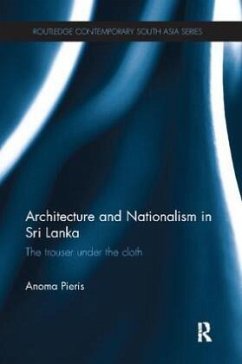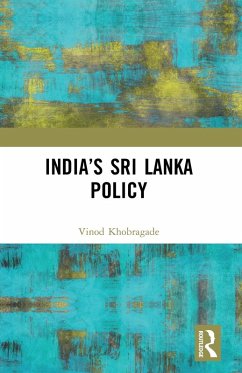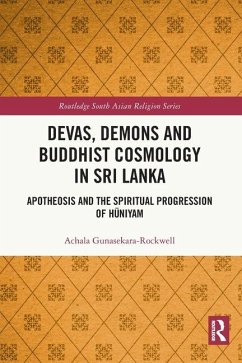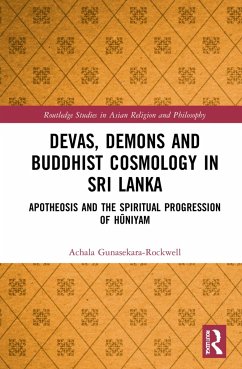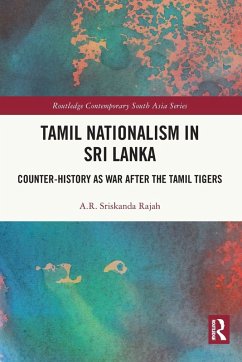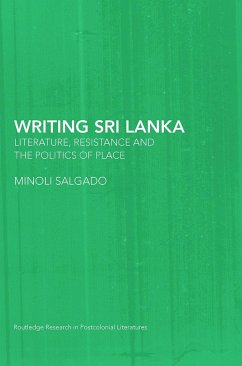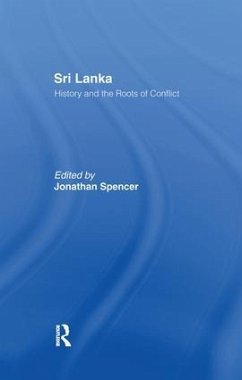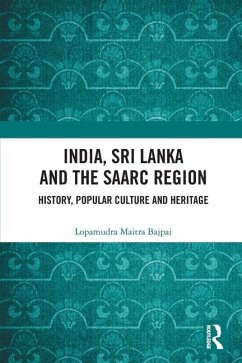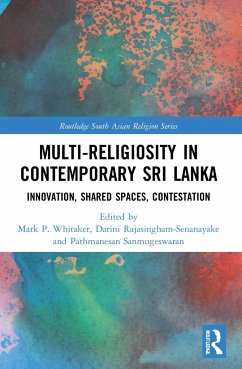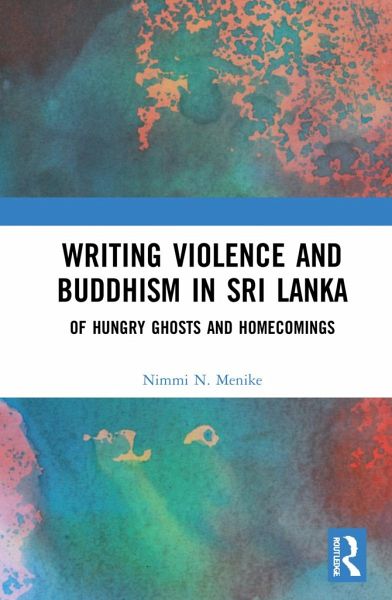
Writing Violence and Buddhism in Sri Lanka
Of Hungry Ghosts and Homecomings
Versandkostenfrei!
Versandfertig in 6-10 Tagen
154,99 €
inkl. MwSt.
Weitere Ausgaben:

PAYBACK Punkte
77 °P sammeln!
This book examines the idea of violence in the context of religion and literature. It addresses the question of freedom and peace, and violence, with reference to the Buddhist nationalist discourse in Sri Lanka, against the backdrop of Shyam Selvadurai's novel, The Hungry Ghosts. The book discusses love, compassion, emancipation, ethics and responsibility through the concepts of identity, deconstruction and decolonization to view religion as language or writing. With a blend of philosophical insights from Emmanuel Levinas, Jacques Derrida, Maurice Blanchot, and Mahatma Gandhi on ideas of being...
This book examines the idea of violence in the context of religion and literature. It addresses the question of freedom and peace, and violence, with reference to the Buddhist nationalist discourse in Sri Lanka, against the backdrop of Shyam Selvadurai's novel, The Hungry Ghosts. The book discusses love, compassion, emancipation, ethics and responsibility through the concepts of identity, deconstruction and decolonization to view religion as language or writing. With a blend of philosophical insights from Emmanuel Levinas, Jacques Derrida, Maurice Blanchot, and Mahatma Gandhi on ideas of being and the other, differences, nonviolence and forgiveness, it insists on the ethical exigency of reinventing Buddhism in Sri Lanka. Delving into some the central motifs of Selvadurai's novel, suffering, desire, hate, and vengeance, it questions popular Sinhala Buddhist readings to argue for the promise of inclusive and diverse approaches towards various groups, linguistic communities, women, and homosexuality.
This book will be useful for scholars and researchers of literature and languages, South Asian literature, literary criticism and theory, linguistics, cultural studies, philosophy, religion, Buddhist studies, diaspora studies, and Sri Lankan literature and sociology.
This book will be useful for scholars and researchers of literature and languages, South Asian literature, literary criticism and theory, linguistics, cultural studies, philosophy, religion, Buddhist studies, diaspora studies, and Sri Lankan literature and sociology.




